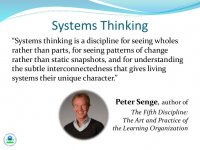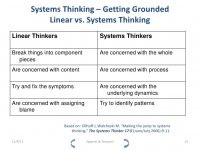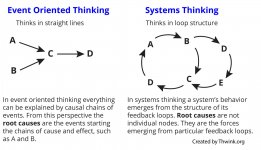desiderata
Member
Does anyone have any experience with "Systems Thinking"?
Are there good resources out there to explore?
Are there good resources out there to explore?
Self-Therapy: A Step-By-Step Guide to Creating Wholeness and Healing Your Inner Child Using IFS, A New, Cutting-Edge Psychotherapy, 2nd Edition
Understand your psyche in a clear and comprehensive way, and resolve deep-seated emotional issues. Self-Therapy makes the power of a cutting-edge psychotherapy approach accessible to everyone. Internal Family Systems Therapy (IFS) has been spreading rapidly across the country in the past decade. It is incredibly effective on a wide variety of life issues, such as self-esteem, procrastination, depression, and relationship issues. IFS is also user-friendly; it helps you to comprehend the complexity of your psyche. Dr. Earley shows how IFS is a complete method for psychological healing that you can use on your own.
Self-Therapy is also helpful for therapists because it presents the IFS model in such detail that it is a manual for the method.




